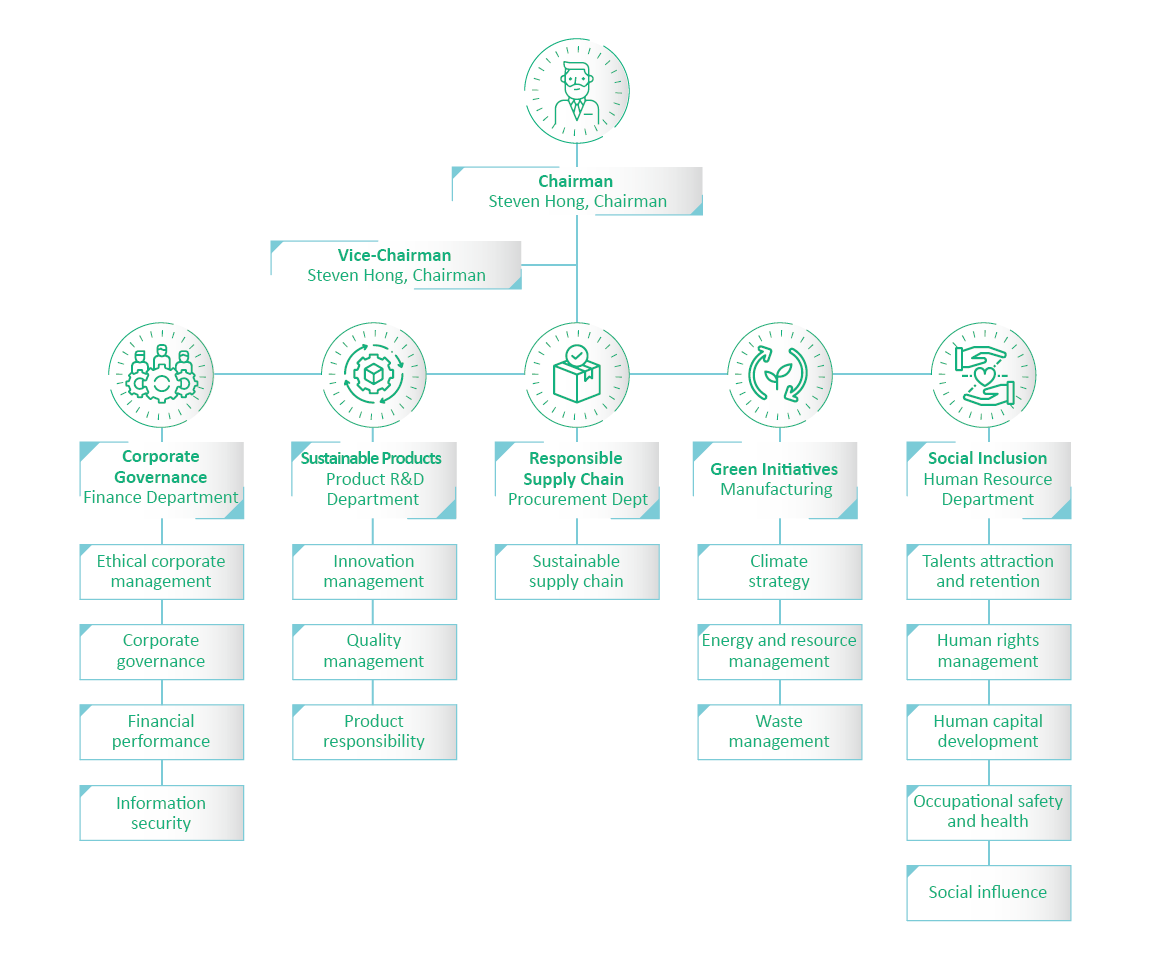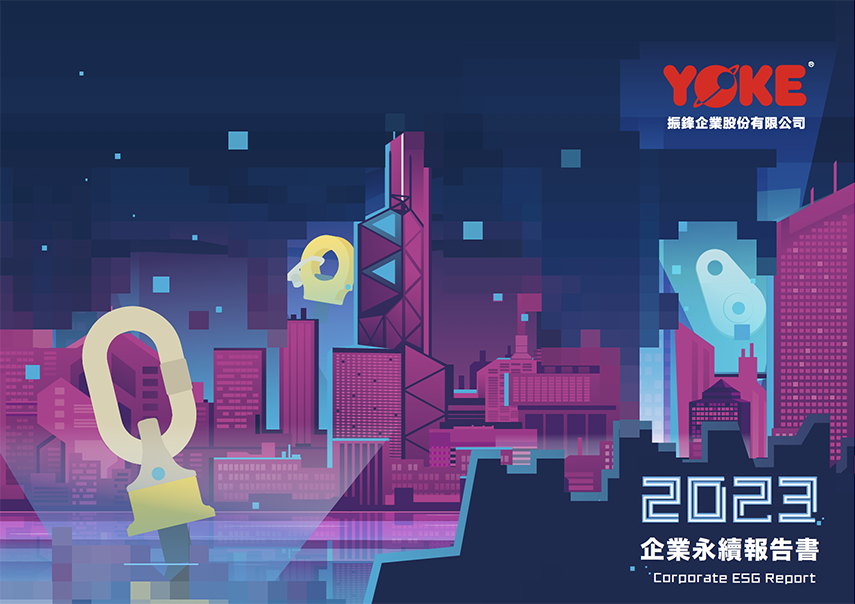- +886-4-2350-8088
- Mon - Fri 8:00 - 17:00
Management process
Sustainable Development Organization and Management
Sustainable Development Committee
We established its Sustainable Development Committee (SDC) with five working groups in 2019, with the chairman being the committee chair, the general manager the vice committee chair, and managers and above officers the committee members. We convene annual sustainability strategy meetings each year, setting targets based on important disclosure topics, with each group developing action plans. In 2024, meetings were held in June and September to report on target implementation status.

Analysis of material issues for disclosure
Yoke conducts materiality analysis annually, continuously incorporating the results into important considerations for operational strategies and short-, medium-, and long-term goals. In 2024, based on “GRI 3: Material Topics 2021” and referencing the “Double Materiality” principle of the European Sustainability Reporting Standards (ESRS), we implemented a 5-stage identification process to assess the impacts of various sustainability topics on society, the environment, and our own operations, determining the material sustainability topics to be prioritized for reporting.
Based on Yoke’s operational activities, business relationships, and stakeholder profiles, relevant sustainability issues are collected with reference to global sustainability reporting standards (GRI, SASB, TCFD) and international sustainability assessment indicators. Yoke’s Sustainability Committee and relevant senior managers then analyze the degree of actual or potential, positive or negative impacts that each issue has on the economy, environment, and people (including human rights) within Yoke’s operational activities and business relationships. They quantify the degree of impact these issues have on the Company’s own operations, and through further discussion, prioritize the issues according to their materiality. Finally, after discussion by the Sustainability Committee, material sustainability issues are confirmed, with priority given to disclosing related target planning and management effectiveness.
PHASE 01
Understand the Organization’s Context
● Identify key stakeholders (4 groups)
● Gather sustainability issues (19 topics)
PHASE 02
Identify Actual and Potential Impacts
PHASE 03
Impact Assessment
● Impact Materiality: Assess the degree of impact on external parties (i.e., “severity” or “benefit level”) and the proximity of occurrence timing (i.e., “likelihood”).
PHASE 04
Prioritize Impacts Significance
● To identify the materiality of each issue, after consolidating the positive and negative impact levels of each issue and conducting ranking, issues that meet the criteria of “high impact materiality” or “high financial materiality” are listed as relatively significant material issues.
PHASE 05
Determine Material Sustainability Issues
● The Sustainability Committee discussed and decided on the material topics to be prioritized for disclosure (confirming 9 material topics).
● Correspond to GRI topics/disclosure indicators (corresponding to 11 GRI topic standards and 3 self-defined topics).
● Correspond to SASB industry metrics: Resource Transformation-Industrial Machinery and Goods.
YOKE Industrial Corp.
#39, 33rd Road, Taichung Industrial Park, Taichung 407, Taiwan
E-mail: info@mail.yoke.com
Tel: +886-4-2350-8088
Quick Link
Other
Live In The Freedom
Follow Us:

